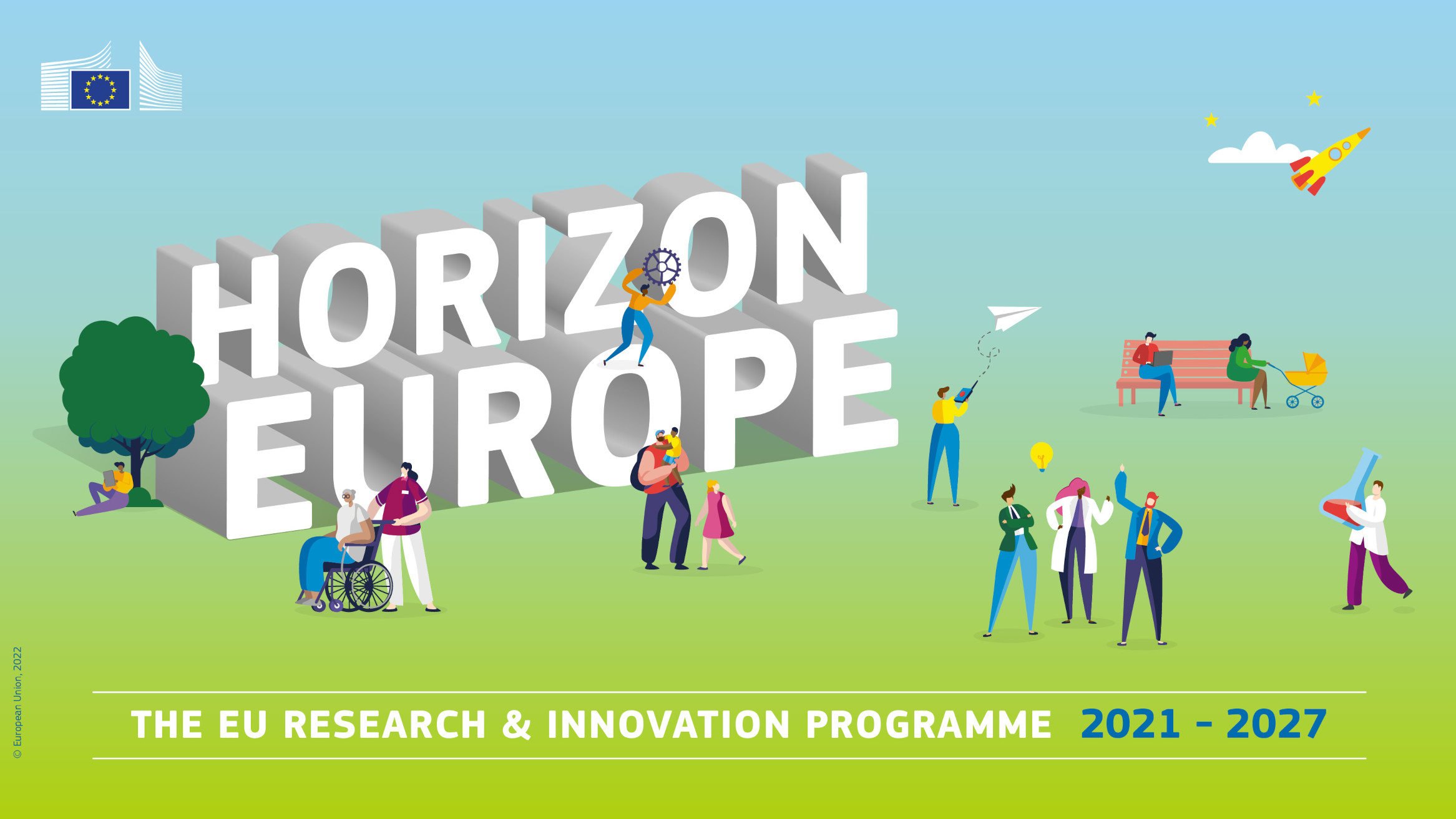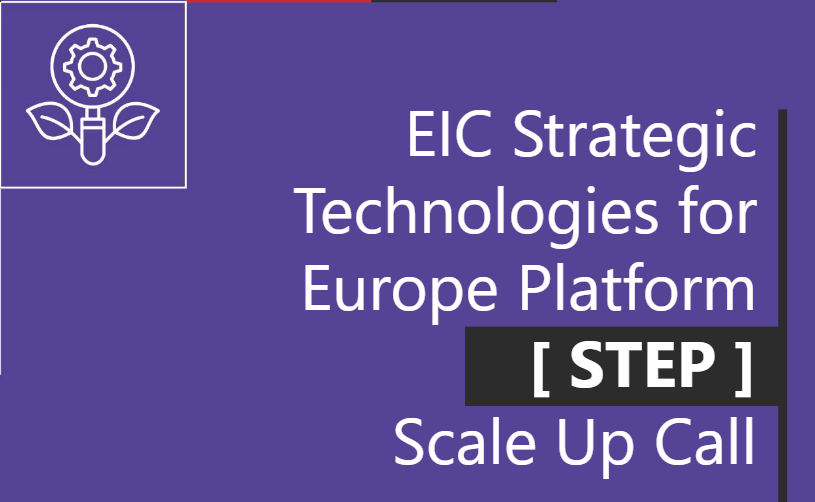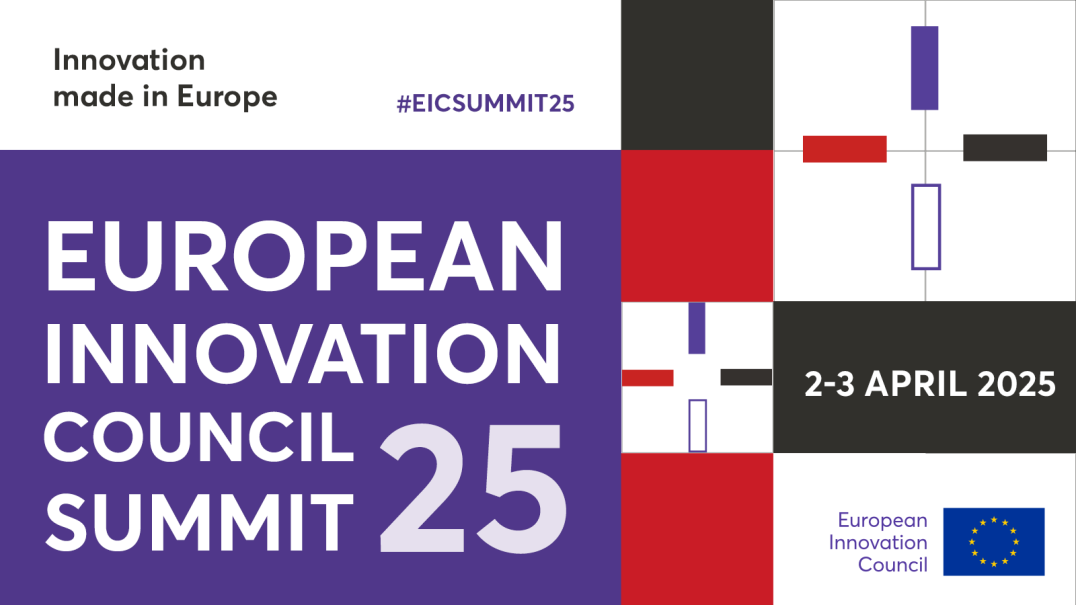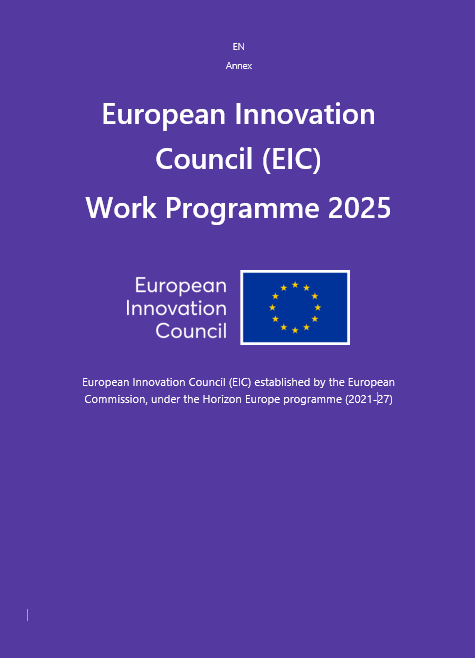2026 European Prize for Women Innovators Now Open
Empowering Europe’s Female Changemakers
In an era rapidly defined by technological breakthroughs and global challenges, it’s crucial to spotlight those driving real impact. The European Prize for Women Innovators, a collaborative initiative by the European Innovation Council (EIC) and the European Institute of Innovation and Technology (EIT), does exactly that—shining a spotlight on women founders and co-founders across Europe whose work is reshaping health, sustainability, digital economies, and more.
What is the Prize?
Originally launched in 2011 as the “European Woman Innovator of the Year,” this prize has evolved into a multi-category recognition by 2023, now awarding nine prizes annually. The categories include:
1. EIC Women Innovators – three main awards of €100 000, €70 000, and €50 000 for established women entrepreneurs.
2. EIC Rising Innovators – aimed at promising innovators under 35, with prizes of €50 000, €30 000, and €20 000.
3. EIT Women Leadership Award – recognizing exceptional leaders within the EIT ecosystem, also offering €50 000, €30 000, and €20 000.
Launched on 17th June 2025, the 2026 edition is now accepting submissions, with a deadline of 25th September 2025 at 17:00 CEST.
Who Can Apply?
To be eligible, applicants must be:
• A natural person identifying as a woman.
• The founder or co-founder of a company or organisation legally established in an EU Member State (including overseas territories) or Horizon Europe–associated country.
• Their company must have been registered at least two years prior to 1st January 2022.
• Women under 35 can apply to the Rising Innovators category; there’s no age limit to the other categories.
Applicants cannot apply to more than one category or have previously won an EU/Euratom prize for the same achievement.
Award Criteria
Evaluations are based on three pillars:
1. Breakthrough Innovation – evidence of deep-tech or STEM-based disruptive innovation.
2. Impact – tangible benefits for people or the planet.
3. Inspiration – leadership that uplifts other women and girls.
Why It Matters
Despite progress, women remain underrepresented in tech and innovation, a gap only widened by systemic barriers in funding and visibility. This prize tackles that head-on, offering substantial financial support, visibility, and a network of peer inspiration. With a top prize of €100 000, alongside runner-up prizes reaching up to €70 000, plus broad media exposure, awardees gain momentum that can supercharge both commercial success and societal impact.
Real-World Impact: Stories from 2025 Winners
Insight comes alive in the stories of last year’s awardees, including those profiled by Sifted and other innovation press:
Women Innovators Award – Agnès Arbat (Oxolife, Spain)
Agnès Arbat co-founded Oxolife to revolutionize fertility treatment. Their flagship drug, OXO 001, significantly improves embryo implantation, boosting live birth rates by about 7% (148 babies born during Phase II trials). Backed by EIT Health and other grants, they’re now advancing towards Phase II trials for PCOS patients in 2026. “All the funds…specifically regarding EIT Health…helped us design the Phase II trial,” says Arbat.
Her research directly addresses infertility, a key health challenge, and showcases women’s central role in biotech innovation.
Rising Innovators – Camille Bouget (Scienta Lab, France)
Under 35, Camille Bouget co-founded Scienta Lab, developing EVA, an AI platform predicting drug efficacy for immuno-inflammatory diseases. With €4.4 million raised, EVA evaluates treatments across 15 conditions, reducing risk early in drug development.
“We can help pave the way for a more inclusive innovation ecosystem…,” Bouget reflects.
She demonstrates how youthful insight, when paired with deep industry know-how, she came from Sanofi and Galápagos, can redefine healthcare innovation.
EIT Women Leadership – Débora Campos (AgroGrIN Tech, Portugal)
Débora Campos founded AgroGrIN Tech to convert industrial fruit waste into functional food ingredients. Following a PhD project, her business now pilots clean-label solutions for food manufacturers, merging sustainability with profitability. “That ecosystem helped us sharpen our business model… accelerate our go-to market strategy,” she says. Her win signals how circular economy innovation can scale, and how support from entities like EIT Food can be transformative.
Support Ecosystem & Evaluation Process
Eligible candidates choose one category and apply via the European Commission’s Funding & Tender portal, where detailed contest rules and submission guides are available.
Applications follow a strict structure:
• Form A (admin) and Form B (technical, max 15 pages)
• Supporting annexes
• A 90-second inspirational video.
A jury of independent experts selects winners based on the three award criteria, ensuring transparency and meritocracy.
How to Apply: Key Dates & Steps
• Launched: 17th June 2025
• Deadline: 25th September 2025 at 17:00 CEST
• Evaluation: September 2025–January 2026
• Awards Ceremony: January–March 2026
Why You Should Consider Applying
1. Boost to innovation – The prize money injects growth capital into R&D, scaling, or market entry.
2. Unmatched visibility – EU-level recognition, featured at events like the EIC Summit.
3. Peer learning – Join an elite community of women leaders.
4. Credibility – Builds trust with investors and strategic partners.
5. Inspiration multiplier – Awardees become role models for women and girls in STEM.
Broader Legacy & Future Outlook
Since its inception, this prize has recognised dozens of women across Europe and associated countries, for example, winners in 2022 included Rocío Arroyo (Spain), Ciara Clancy (Ireland), and others. These laureates now lead in sectors ranging from biotech to sustainable energy.
Today’s expansion, with more categories, bigger prizes, and open eligibility across EU and associated nations, demonstrates strong commitment to diversity in innovation. By 2026, the award infrastructure will include support webinars, mentorship opportunities, and more visible storytelling.
Eurostars Call 9 Opens July 2025
Funding for Internationally Collaborating Innovative SMEs
The Eurostars programme, jointly managed by EUREKA and the European Commission, is one of Europe’s most SME-friendly funding schemes for collaborative R&D. It is designed to support R&D-performing SMEs and their partners in developing innovative, market-ready products, services, or processes through international collaboration. The next funding opportunity—Eurostars 3, Call 9—opens on 4 July 2025 and will close on 4 September 2025 at 14:00 CEST.
This call is part of the Horizon Europe Partnership on Innovative SMEs and is aimed at small consortia of organisations from different participating countries. Its objective is clear: to support innovative SMEs in executing transnational R&D projects with high market potential and commercial ambition.
Key Dates and Timeline
Eurostars Call 9 provides a two-month application window, with a streamlined evaluation and decision-making process.
Important dates include:
- Call opens: 4th July 2025
- Deadline for submission: 4th September 2025 at 14:00 (CEST)
- Evaluation results: Expected by end of November or early December 2025
- Project start dates: Typically within 6 months of submission, subject to national processes
Applicants are advised to begin early and consult their national funding bodies to align with country-specific rules and requirements.
Who Can Apply?
Eurostars is open to SMEs leading international R&D collaborations, with a particular focus on innovation and commercialisation. Projects must be led by an R&D-performing SME and involve partners from at least two participating Eurostars countries.
Minimum eligibility criteria:
- The project consortium must include at least two independent entities from two different Eurostars countries (UK is included).
- The lead applicant must be an innovative SME from a Eurostars country.
- SMEs must carry at least 50% of the total project costs (excluding subcontracting).
- No participant or country can contribute more than 70% of the total budget.
- Projects must have a maximum duration of 36 months.
- Results should be targeted for civil applications only.
Eurostars currently includes 37 countries, including EU member states, the UK, Norway, Turkey, Israel, Switzerland, and several others. The programme’s flexibility allows SMEs to partner with universities, large companies, and research centres, if the SME remains the project lead.
Funding Rules and Budget
Funding through Eurostars is provided on a decentralised basis, meaning that each participating country funds its own organisations according to national rules. This means that grant rates, eligible costs, and submission procedures can vary significantly between countries.
Typical funding characteristics:
- SMEs can receive between 40–80% of eligible costs, depending on national rules (60% in the UK).
- Universities and research institutes are often eligible for funding, but this varies (not eligible in the UK).
- Maximum grant sizes also vary; some countries cap funding per partner or per project (€600,000 total cost maximum for UK SMEs).
Applicants must contact their national funding agency to confirm their eligibility and understand any specific requirements before submitting.
Application and Evaluation Process
The Eurostars application process is fully online via the Eureka Project Management Platform. The system opens on 4th July 2025, and proposals must be submitted by 4th September 2025 at 14:00 CEST.
The submission and evaluation process includes:
- Online application: Including technical annex, budget, partner declarations, and Gantt chart.
- Eligibility checks: Ensuring all criteria are met, conducted immediately after the deadline.
- Technical assessment: Carried out by two independent international experts.
- Centralised evaluation: Projects are ranked by an Independent Evaluation Panel.
- Ethics review: Conducted for projects involving sensitive data, human subjects, or ethical risks.
- Funding decisions: Made by national funding bodies, typically 6–8 weeks after the ranking list is finalised.
A clear strength of Eurostars is its centralised evaluation with decentralised funding, enabling high-quality cross-border projects while preserving national control over budgets.
Why Apply: Key Benefits of Eurostars
Eurostars stands out for its accessibility, flexibility, and proven impact on SME growth. It is particularly attractive for SMEs that are too small for direct EU programmes like EIC Accelerator or Horizon Europe collaborative calls, yet still need substantial support to scale innovation internationally.
Top reasons to apply:
- High success rate: ~29%, significantly higher than most EU R&D schemes.
- Bottom-up approach: No fixed themes - applicants define their own project scope.
- Quick feedback: Results delivered within 3 months of submission.
- Flexible funding: Each partner receives funds through its own national agency.
- Strong impact: On average, participating SMEs increase their turnover by 15% and enter new international markets.
- Small consortia allowed: Ideal for agile, focused R&D collaborations (2–4 partners).
Preparing a Competitive Application
To boost your chances of success, preparation is key. Applicants are encouraged to attend webinars and national information sessions, some of which will take place in early July 2025.
Tips for success:
- Engage your national contact point early to confirm eligibility.
- Build a balanced, complementary consortium with clear roles and shared risk.
- Ensure your project has a clear route to market, including a commercialisation plan.
- Emphasise your project’s technical excellence, commercial potential, and societal impact.
- Allow time for internal review, document collection, and Gantt chart planning.
- Use professional support services where necessary, several consultancies across Europe specialise in Eurostars bid writing.
Next Steps: What Should You Do Now?
If you’re considering applying to Eurostars Call 9, here’s what you should do next:
- Check eligibility with your national funding body
- Identify potential partners in other Eurostars countries
- Mark your calendar for the 4th July 2025 opening
- Start drafting your proposal early
- Attend a webinar for application tips and evaluation insights
- Register on the Eurostars portal: www.myeurekaproject.org
For a free consultation to discuss your project in more detail, contact RedKnight today.
EC Launches Ambitious Strategy to Boost Startups and Scaleups
On 28th May 2025, the European Commission (EC) unveiled its ambitious EU Startup and Scaleup Strategy, aiming to position the European Union (EU) as the premier destination for technology-driven innovative companies. Central to this initiative is the expansion and simplification of the European Innovation Council (EIC), designed to provide enhanced funding opportunities for startups and scaleups, particularly in the deep tech sector.
Key Components of the Strategy
- Innovation-Friendly Regulation: The EC plans to simplify existing rules, reduce administrative burdens, and introduce regulatory sandboxes. These measures are intended to create a more conducive environment for startups and scaleups to innovate and grow.
- Enhanced Financial Support: The strategy includes the establishment of a Scaleup Europe Fund and efforts to mobilize institutional investors. These initiatives aim to bridge the financing gap for deep tech companies, facilitating their growth and competitiveness.
- Talent Development and Retention: Initiatives such as "Lab to Unicorn," "Blue Carpet," and the "EU Visa Strategy" are set to attract and retain top talent. These programs focus on nurturing innovative ideas from the lab stage to full-scale commercial success, ensuring that the EU remains a hub for cutting-edge innovation.
- Infrastructure Access: The EC will provide easier access to research and technology infrastructures. Additionally, the introduction of a Charter of Access for industrial users aims to support the rapid commercialisation of innovative solutions.
Monitoring and Evaluation
To assess the effectiveness of the strategy, the EC will monitor progress through key performance indicators. These include tracking the increase in the number of startups, scaleups, centaurs (companies valued over €100 million), and unicorns (companies valued over €1 billion) within the EU. A comprehensive report on the implementation and outcomes of the strategy is scheduled for release by the end of 2027.
Implications for the European Innovation Ecosystem
This comprehensive strategy highlights the EU's commitment to fostering a robust innovation ecosystem. By addressing regulatory, financial, talent, and infrastructural challenges, the EC aims to create an environment where startups and scaleups can thrive. The focus on deep tech and the expansion of the EIC are particularly noteworthy, as they signal a strategic move to position the EU at the forefront of technological advancement.
For entrepreneurs, investors, and stakeholders within the EU, this strategy presents new opportunities for growth, collaboration, and innovation. As the implementation unfolds, it will be crucial to engage with the various programs and initiatives to fully leverage the support mechanisms being introduced.
VInnovate 2025 Funding Launched
The Vanguard Initiative (VI) has officially launched the VInnovate Call 2025, opening on 2nd May 2025 at 5.00pm CET. This initiative offers a unique opportunity for Small and Medium-sized Enterprises (SMEs) and innovation stakeholders across 12 European regions to secure funding for interregional, industry-led innovation projects. Building upon the success of the 2024 pilot, VInnovate 2025 aims to accelerate the development of advanced technologies and strengthen European value chains through collaborative efforts.
What Is VInnovate?
VInnovate is the VI’s dedicated interregional funding mechanism designed to support post-prototype innovation projects (Technology Readiness Levels 6–8). It facilitates cross-border collaboration among SMEs, research institutions, and industry partners, focusing on projects that align with the VI’s strategic priorities:
- Advancing a smarter industry through digital integration.
- Promoting a more sustainable industry targeting climate neutrality.
- Fostering a more autonomous industry to reduce dependency on external regions for deep-tech innovations and strategic services.
Eligible projects must be thematically linked to at least one of the eight VI pilot areas:
- Bio-Economy
- Efficient and Sustainable Manufacturing
- High Performance Production through 3D-Printing
- Advanced Manufacturing for Energy Related Applications in Harsh Environments
- New Nano-Enabled Products
- Artificial Intelligence
- Smart Health/Personalised Medicine
- Hydrogen (H2)
Who Can Apply?
The VInnovate Call 2025 is open to consortia that meet the following criteria:
- Consortium Composition: At least two organisations from two different participating regions and countries (see below).
- SME Involvement: Each consortium must include at least one SME collaborating with another entity, such as another SME, a large company, a research/technology centre, or a university.
- Geographical Eligibility: All participating organizations must be located in one of the 12 VInnovate 2025 regions:
- Basque Country
- East Netherlands (Gelderland and Overijssel)
- Emilia-Romagna
- Flanders
- Galicia
- Lombardy
- Lower Austria
- Lower Saxony
- Norte
- North-East Romania
- Noord-Brabant
- Wales
Each applicant must comply with the requirements of their respective regional or national funding instruments, in addition to the overarching VInnovate criteria.
Funding Details
- Project Budget: Minimum total project costs of €100,000.
- Project Duration: Up to 36 months.
- Funding Type: Grants, with funding rates and eligible costs determined at the regional level.
- Eligible Activities: Projects should focus on activities at TRL 6-8, encompassing demonstration, piloting, and market replication phases.
Application Timeline
- Call Opening: 2nd May 2025 at 5.00pm (CET).
- Project Fit Form Submission Deadline: 15th September 2025 at 11.59pm (CET).
- Online Info Session: 6th May 2025 from 10.00am to 11.30am (CET).
- Project Generation Webinars:
- Webinar 1: 22nd May 2025 from 11.00am to 12.30pm (CET).
- Webinar 2: 17th June 2025 from 11.00am to 12.30pm (CET).
Interested stakeholders are encouraged to participate in the info session and webinars to gain insights into the application process and to network with potential partners.
How to Apply
- Project Fit Form: Submit a preliminary Project Fit Form by 15th September 2025, outlining the project's objectives, consortium composition, and alignment with VI pilot areas.
- Full Proposal: Upon positive assessment of the Project Fit Form, each consortium member must submit a detailed proposal to their respective regional funding agency, adhering to specific regional requirements.
- Evaluation and Selection: Projects will be evaluated based on their innovation potential, alignment with VI priorities, and the strength of interregional collaboration.
Strategic Importance
The VInnovate Call 2025 represents a significant step in fostering interregional innovation within Europe. By supporting projects that bridge regional strengths and expertise, VInnovate aims to:
- Accelerate the commercialisation of advanced technologies.
- Enhance the competitiveness of European industries.
- Promote sustainable and autonomous industrial development.
- Strengthen interregional cooperation and knowledge exchange.
This initiative aligns with the broader goals of the European Union to drive innovation, sustainability, and economic growth across its member states.
Additional Resources
For a FREE consultation to discuss your project in more detail, contact RedKnight today.
Horizon Europe 2025 Work Programme Announced
Driving Europe's Innovation Ambition
The European Commission (EC) has officially launched the Horizon Europe 2025 Work Programme, a major milestone in the EU’s €95.5 billion flagship research and innovation initiative. Covering a critical year within the 2025–2027 strategic cycle, this Work Programme defines Europe's science and innovation priorities, setting a clear path towards tackling global challenges, accelerating the green and digital transitions, and securing Europe's position as a global leader in innovation.
This new Work Programme builds directly upon the Horizon Europe Strategic Plan 2025–2027, which set three overarching strategic orientations: a green transition, a digital transition, and a more resilient, competitive, inclusive, and democratic Europe.
Strategic Priorities for 2025
The 2025 Work Programme supports three interconnected priorities:
1. Green Transition:
o Accelerating progress towards climate neutrality and sustainability.
o Protecting biodiversity and promoting circular economy practices.
2. Digital Transition:
o Strengthening Europe's digital sovereignty and advancing artificial intelligence, quantum technologies, cybersecurity, and next-generation computing.
3. Resilient and Inclusive Society:
o Building economic competitiveness, safeguarding democratic institutions, and promoting inclusivity and social resilience.
This programme focuses on open strategic autonomy and aims to strengthen Europe's technological and industrial leadership, while ensuring that the transitions are socially fair and inclusive.
Funding Overview
In 2025, over €7.2 billion will be invested across Horizon Europe's pillars and thematic clusters. The funding distribution reflects the EU’s commitment to scientific excellence, global competitiveness, and societal impact.
The programme is structured around Horizon Europe's three pillars:
• Pillar I: Excellent Science
o Supports frontier research via the European Research Council (ERC) and the Marie Skłodowska-Curie Actions (MSCA) for researcher mobility and training.
o Strengthens world-class research infrastructures critical for advanced science.
• Pillar II: Global Challenges and European Industrial Competitiveness
o Funds research under six thematic clusters:
- Health
- Culture, Creativity, and Inclusive Society
- Civil Security for Society
- Digital, Industry, and Space
- Climate, Energy, and Mobility
- Food, Bioeconomy, Natural Resources, Agriculture, and Environment
- Encourages cross-sector collaboration to tackle complex societal challenges.
• Pillar III: Innovative Europe
o Advances innovation ecosystems, notably through the European Innovation Council (EIC), supporting breakthrough technologies and high-potential companies.
o Strengthens the European Institute of Innovation and Technology (EIT) and regional innovation hubs.
Beyond the three pillars, the programme also includes actions to widen participation and strengthen the European Research Area (ERA), ensuring all member states benefit from scientific progress and innovation.
Green and Climate Focus
In line with the European Green Deal, the 2025 Work Programme reinforces Europe's leadership in environmental innovation:
• 35% of Horizon Europe's total budget is earmarked for climate-related activities.
• A new and notable commitment is that at least 10% of the Horizon Europe budget will now be dedicated specifically to biodiversity-related research.
Topics will address renewable energy systems, zero-emission mobility, climate adaptation, sustainable food systems, and restoration of ecosystems, helping Europe meet its 2030 climate and biodiversity targets.
European Innovation Council 2025 Actions
The European Innovation Council (EIC) plays a pivotal role in the 2025 Work Programme, with over €1.4 billion in funding to accelerate deep tech innovation.
The EIC's three major funding instruments are:
• EIC Pathfinder: Supports early-stage, high-risk research into revolutionary technologies.
• EIC Transition: Bridges the gap between research and market by funding proof-of-concept and prototype development.
• EIC Accelerator: Provides grants and blended finance (grants plus equity investment) to scale up start-ups and SMEs, especially in strategic areas such as health, digital, and clean tech.
The EIC continues to position Europe at the forefront of deep tech entrepreneurship, driving the next generation of global technology champions.
Widening Participation and Strengthening the ERA
The 2025 programme places strong emphasis on inclusivity and geographic balance across Europe. Actions under the Widening Participation and Strengthening the ERA section aim to:
• Boost the research and innovation capacity of less-performing countries (often referred to as “Widening countries”).
• Promote brain circulation and reduce the R&D divide across regions.
• Strengthen gender equality, open science practices, and citizen engagement in research activities.
By creating more equitable opportunities for participation, the EU ensures that excellence is fostered across all regions, not just in traditional innovation hubs.
International Collaboration
Recognising that global challenges require global solutions; the 2025 Work Programme maintains a strong emphasis on international cooperation.
Key initiatives include:
• Targeted collaboration with strategic partner countries and regions, notably Africa, the Western Balkans, and Latin America.
• Specific calls for cooperation in areas like global health, climate action, and resilient food systems.
The EU continues to position Horizon Europe as an open platform for global scientific collaboration, while safeguarding Europe's strategic interests and ethical standards.
Stakeholder Consultation and Co-Design Approach
In shaping the 2025 Work Programme, the EC engaged extensively with stakeholders through a consultation process between April and May 2024. Researchers, industry leaders, policymakers, and civil society representatives contributed feedback, ensuring that the programme reflects the needs, expectations, and expertise of Europe's innovation community.
This co-design approach ensures greater relevance, transparency, and impact across funded projects.
For more information about the Horizon Europe work programmes, click here.
EC Invests €1.3B in Digital Europe Programme
On 28th March 2025, the European Commission announced a significant investment of €1.3 billion aimed at bolstering Europe's capabilities in artificial intelligence (AI), cybersecurity, and digital skills. This funding is part of the Digital Europe Programme's work plan for 2025 to 2027, highlighting the EU's commitment to enhancing its technological sovereignty and accelerating digital transformation across member states.
Note to reader: The United Kingdom is not currently associated with the European Union’s Digital Europe Programme following Brexit. This means UK-based organisations are not eligible to apply for or receive funding through the programme. If you are based in the UK, this article is for information purposes only.
Strategic Focus Areas
The allocated funds will be directed toward several key areas:
- Artificial Intelligence (AI) Deployment and Adoption: The initiative aims to facilitate the integration of AI technologies into both businesses and public administrations, promoting innovation and efficiency.
- Cloud and Data Infrastructure: Investments will support the development of robust cloud services and data infrastructures, ensuring secure and efficient data management and accessibility.
- Cyber Resilience: Enhancing cybersecurity measures is a priority to protect digital assets and infrastructures from evolving cyber threats.
- Digital Skills Development: The programme emphasises the importance of equipping citizens with the necessary digital skills to thrive in an increasingly digital economy.
Implementation and Accessibility
The European Commission plans to roll out calls for proposals starting in April 2025, with additional opportunities expected throughout the year. These calls will be accessible to businesses, public administrations, and other entities from EU Member States, EFTA/EEA countries, and nations associated with the Digital Europe Programme.
Interested parties can find detailed information on open calls and application procedures on the Digital Europe website.
Alignment with Broader EU Digital Strategies
This investment aligns with the EU's broader digital strategies, including the 2030 Digital Compass, which outlines Europe's digital ambitions for the next decade. By focusing on critical areas such as AI, cybersecurity, and digital skills, the EU aims to position itself as a leader in the global digital landscape.
Henna Virkkunen, the European Commission's digital chief, emphasised the importance of this initiative, stating, "Securing European tech sovereignty starts with investing in advanced technologies and in making it possible for people to improve their digital competences."
Expected Impact
The €1.3 billion investment is anticipated to have a transformative impact on Europe's digital ecosystem by:
- Driving Innovation: Facilitating the development and adoption of cutting-edge AI technologies across various sectors.
- Enhancing Security: Strengthening cybersecurity frameworks to protect critical infrastructures and data.
- Building a Skilled Workforce: Providing citizens with the digital skills necessary to participate effectively in the digital economy.
- Fostering Economic Growth: Enabling businesses, especially SMEs, to leverage digital technologies for increased competitiveness and market expansion.
This strategic investment reflects the EU's commitment to creating a resilient, inclusive, and forward-looking digital environment that benefits all its citizens and positions Europe at the forefront of global technological advancements.
The EIC STEP Scale-Up Programme
The Strategic Technologies for Europe Platform (STEP) Scale-Up Programme is a pivotal new initiative under the European Innovation Council (EIC), designed to provide large-scale equity investments for deep-tech startups. With an initial €300 million budget in 2025, expanding to €900 million by 2027, the programme targets strategic sectors including digital technologies, clean energy, and biotech. By bridging the funding gap for high-potential European companies, STEP aims to reduce Europe’s reliance on non-EU technology providers and strengthen the region’s innovation ecosystem.
Background
European deep-tech startups have long faced challenges in securing growth-stage funding, particularly when scaling up beyond early-stage venture capital. Many promising EU-based companies struggle to compete with their counterparts in the US and China, where access to private capital is significantly greater. Recognising this challenge, the European Commission (EC) introduced the STEP Scale-Up Programme to provide much-needed equity investments ranging from €10 million to €30 million per company.
The programme is not only about financing—it's about building European resilience in critical technology sectors such as semiconductors, AI, quantum computing, clean tech, and healthcare innovation.
Objectives of the STEP Programme
The primary goal of the STEP Scale-Up Programme is to enhance Europe's technological sovereignty by supporting companies working in strategic industries. The initiative has four key objectives:
- Scaling Up Deep-Tech Startups: The funding gap in the EU's venture capital landscape means that many startups struggle to grow beyond early development stages. STEP provides equity funding at a critical moment, allowing companies to expand their operations, scale production, and enter global markets.
- Reducing Reliance on Non-EU Technologies: Europe has become increasingly dependent on technology imports, particularly in areas like semiconductors, cloud computing, and clean energy technologies. The STEP programme seeks to reduce this dependency by supporting homegrown companies that can develop and manufacture these technologies within Europe.
- Attracting Private Investment: STEP requires companies to secure at least 20% of their funding from private investors, ensuring that public funds are used alongside market-driven capital. This co-investment approach helps attract venture capital firms, institutional investors, and corporate partners to Europe's innovation ecosystem.
- Strengthening Europe's Position in Global Innovation: By supporting European companies in strategic sectors, STEP aims to position the EU as a leader in emerging technologies rather than a consumer of foreign innovations.
Funding and Investment Mechanism
The STEP Scale-Up Programme operates as an equity-focused funding scheme within the EIC. Unlike traditional grant funding, STEP invests directly in companies through equity or quasi-equity instruments:
- Equity investments range from €10 million to €30 million per company.
- The total budget for 2025 is €300 million, with plans to expand to €900 million by 2027.
Co-Investment Requirement
To qualify for STEP funding, applicants must secure at least 20% of their funding round from a qualified private investor. This means that if a company seeks €20 million, it must first obtain €4 million from private investors before the EU steps in with additional equity support.
The STEP Seal
One unique feature of the programme is the STEP Seal, awarded to projects that pass the EIC’s rigorous evaluation process. Companies with the STEP Seal gain:
- Access to alternative funding sources (e.g., national innovation agencies and private investors).
- Business acceleration services to help scale internationally.
- Increased credibility with potential co-investors.
Who Can Apply?
Startups, SMEs, and Small Mid-Caps (up to 499 employees):
- Established within a Member State or an Associated Country.
- An investor may submit a proposal on behalf of an eligible SME or small mid-cap as defined above.
This scheme targets companies seeking major funding rounds, requiring proof of initial market interest from a qualified investor covering at least 20% of the total target funding round.
Sectors of Focus
- Digital technologies (AI, semiconductors, quantum computing, cybersecurity)
- Clean energy and sustainability solutions
- Advanced healthcare and biotech innovations
- Space technologies and robotics
For more detailed information on the sectors of focus, see the Guidance Note on STEP.
Application Process
The STEP Scale-Up Programme has an ongoing application process, with funding rounds every three months.
Step 1: Submission your proposal
- a full business plan, including information on the company’s ownership and financial structure, STEP related objectives (maximum 50 pages).
- a pitch-deck in PDF (15 pages maximum).
- a pre-commitment from a qualified investor.
- an ownership control declaration.
- If your application meets the eligibility requirements, you will be invited to attend a jury interview.
You will be informed about the interview in 4-6 weeks from the start of the evaluation process.
EIC Jury Interview
- At the interview, you will be assessed by a Jury of maximum six members.
- You will be informed about the result of the interview in 2 weeks from the date of the interview.
Companies, irrespective of whether they are retained for funding or not, that meet all evaluation criteria will be awarded the Sovereignty Seal and gain access to Business Acceleration Services.
Furthermore, if your proposal does not meet the criteria, you will receive feedback to help improve future applications.
For the full EIC STEP Up Call, please see the EIC work programme 2025 (pages 96-105).
You can access the full EIC STEP Scale Up Call Submission Guidance here.
EIC Summit 2025 - Save the Date
The European Innovation Council (EIC) is set to host its fourth annual summit on the 2nd and 3rd April 2025, at the historic Tour & Taxis venue in Brussels. This flagship event serves as a central hub for innovators, researchers, policymakers, and investors across Europe, fostering collaboration and showcasing groundbreaking advancements in technology and business.
Event Overview
The EIC Summit 2025 is structured over two days, each tailored to distinct audiences and objectives:
- Day 1: 2nd April 2025
- Focus: Exclusively dedicated to EIC beneficiaries.
- Activities: A series of workshops, pitching sessions, and networking opportunities designed to support and accelerate the growth of EIC-funded projects and companies.
- Day 2: 3rd April 2025
- Focus: Open to the public.
- Activities: Engaging discussions and fireside chats covering a broad spectrum of topics relevant to innovation, entrepreneurship, and technology policy.
Throughout both days, attendees will have ample opportunities to network and explore an exhibition featuring a diverse array of EIC-supported projects, providing insights into the latest innovations poised to impact various industries.
Significance of the EIC Summit
The EIC Summit has established itself as a pivotal event in Europe's innovation landscape. It brings together high-growth startups, small and medium-sized enterprises (SMEs), researchers, corporate leaders, and investors, creating a dynamic environment for knowledge exchange and partnership formation. The summit also serves as a platform for the EIC to announce new initiatives, funding opportunities, and policy directions that shape the future of European innovation.
What to Expect
Participants can look forward to:
- Workshops: Interactive sessions offering practical guidance on topics such as intellectual property rights, investment strategies, and scaling businesses.
- Pitching Sessions: Opportunities for startups and innovators to present their ideas to potential investors and partners, facilitating access to funding and collaborative ventures.
- Panel Discussions and Fireside Chats: Conversations with industry experts, policymakers, and successful entrepreneurs discussing current trends, challenges, and opportunities in the innovation ecosystem.
- Exhibition: A showcase of cutting-edge projects funded by the EIC, highlighting technological advancements across various sectors.
Networking Opportunities
The summit's design emphasises networking, providing structured and informal settings for attendees to connect. This environment encourages the formation of strategic partnerships, investment opportunities, and collaborative research endeavours, all crucial for driving innovation forward.
Venue: Tour & Taxis
Located in Brussels, Tour & Taxis is a historic site that has been repurposed into a modern event space, blending architectural heritage with contemporary facilities. Its central location and unique ambiance make it an ideal venue for hosting an event of this magnitude.
Stay Informed
As the event approaches, additional details, including registration information, agendas, and speaker announcements, will be made available. Interested parties are encouraged to stay updated by following the EIC on social media platforms such as X (formerly Twitter) and LinkedIn.
The EIC 2025 Work Programme
The European Innovation Council (EIC) unveiled its 2025 Work Programme, highlighting ambitious initiatives designed to solidify Europe’s position as a leader in breakthrough technologies and strengthen its strategic autonomy. By funding high-risk, high-reward innovations, the EIC aims to transform scientific discoveries into market-ready technologies, fostering an environment where innovative companies can thrive and compete globally. This article delves into the essential changes, major highlights, and anticipated impact of the EIC 2025 Work Programme.
1. The New STEP Scale-Up Scheme: Bridging the Funding Gap
One of the centrepieces of the EIC 2025 Work Programme is the newly introduced STEP Scale-Up Scheme. This €300 million initiative is a direct response to the well-documented challenges European deep-tech startups face in securing sufficient growth funding. While Europe has excelled in generating innovative ideas and producing early-stage start-ups, a lack of substantial follow-on funding has limited many companies’ abilities to scale globally.
The STEP Scale-Up Scheme is specifically tailored to address this gap, targeting high-impact companies developing critical technologies. These include digital innovations, clean tech, and biotech solutions - sectors deemed essential for Europe’s competitive and strategic positioning. The scheme will prioritise funding for projects that have a clear path to scale but need significant investment to reach that next level. By doing so, the EIC aims to prevent promising companies from seeking funding outside the EU, which often results in them relocating.
2. Enhanced Focus on Strategic EIC Challenges
The EIC has refined and expanded its EIC Challenges, allocating over €370 million to address pressing global and European priorities. EIC Challenges act as targeted calls for proposals within specific high-potential fields, encouraging innovators to tackle some of the world’s most complex problems. For 2025, the EIC has introduced new and strategically relevant challenges, each designed to push the boundaries of current knowledge and technological capability.
Key areas of focus include:
• Generative Artificial Intelligence (AI): As generative AI continues to disrupt industries, the EIC Challenge in this domain is set to accelerate the development of Europe-centred AI innovations. The goal is to build competitive AI applications that address Europe’s ethical, social, and economic needs, ultimately ensuring Europe’s sovereignty over AI technologies.
• Climate-Resilient Crops: Responding to the urgent need for sustainable agriculture in the face of climate change, this challenge calls for the development of crops that can withstand increasingly extreme weather patterns. Innovations in this space are expected to bolster food security and reduce dependency on external agricultural imports.
• Autonomous Robots for Sustainable Industry: Targeting robotics and automation in industrial settings, this challenge aims to make European industries more sustainable and efficient. By promoting innovations in autonomous robotic systems, the EIC hopes to minimise environmental impact, reduce waste, and create safer working environments.
• Agri-Tech Solutions: Recognising agriculture as a backbone of European sustainability, the EIC is also investing in disruptive agri-tech solutions. These solutions will focus on precision farming, smart sensors, and AI-enabled decision-making tools to support sustainable practices and enhance productivity across European agriculture.
These challenges reflect the EIC’s commitment to addressing both immediate and long-term strategic needs, ensuring that Europe stays at the forefront of technology-driven societal change.
EIC Transition Programme: Bridging Research and Market
The 2025 Work Programme allocates €98 million to the EIC Transition Open, which has no predefined thematic priorities and is open to proposals in any field of science, technology, or application.
The EIC Transition programme is designed to mature novel technologies beyond the experimental proof of principle, facilitating their progression from laboratory settings to real-world applications. It supports single entities or small consortia, including SMEs, start-ups, research organisations, and universities, aiming to validate technologies and develop business plans for specific applications at Technology Readiness Levels (TRL) 3 to 6.
Key features of the EIC Transition include:
• Funding Support: Grants of up to €2.5 million are available to validate and demonstrate technology in application-relevant environments and develop market readiness.
• Booster Grants: Additional booster grants, not exceeding €50,000, are offered for ongoing projects to explore potential commercialization pathways or for portfolio activities.
• Business Acceleration Services (BAS): Beneficiaries gain access to a range of tailor-made BAS, including coaching, mentoring, expertise, training, and connections to global partners and innovation ecosystems.
EIC Accelerator Programme: Scaling Innovations
The EIC Accelerator programme offers €634 million for start-ups and SMEs to develop and scale up innovations with the potential to create new markets or disrupt existing ones. It supports companies aiming to scale up and seeking substantial funding, particularly when the associated risks are too high for private investors alone.
Key components of the EIC Accelerator include:
• Grant Funding: Lump sum contributions below €2.5 million are provided for innovation activities (TRL 6-8), to be completed within 24 months.
• Investment Component: To bridge the gap for high-risk innovations, the programme offers equity investments ranging from €0.5 million to €10 million, with higher amounts available under the STEP Scale-Up scheme. (Not available to UK entities).
• Blended Finance: A combination of grant and equity or quasi-equity (such as convertible loans) is available to support both innovation activities and market deployment.
• Business Acceleration Services (BAS): Similar to the Transition programme, Accelerator beneficiaries have access to BAS, facilitating connections with global partners, coaches, mentors, and innovation ecosystems.
3. Expanded Business Acceleration Services (BAS) for Wider Inclusivity
Recognising that financial support alone isn’t sufficient, the EIC has broadened its Business Acceleration Services (BAS), giving startups and SMEs access to invaluable non-financial resources. This includes mentorship, networking opportunities, and tailored coaching designed to support companies at all stages of growth. The BAS programme will be further expanded in 2025, with an emphasis on reaching underrepresented regions and sectors across the EU.
For the first time, the BAS will specifically target innovators from underrepresented regions, addressing imbalances within the EU’s innovation ecosystem. By providing these innovators with the same level of support available to their counterparts in more established innovation hubs, the EIC aims to create a more balanced and inclusive landscape for European innovation.
Additionally, Seals of Excellence will be awarded to highly promising projects that do not receive EIC funding, guiding them towards alternative European and national funding opportunities. This measure serves to reduce the potential for lost innovation due to limited resources, maximising the impact of the EIC's efforts.
4. The Role of Strategic Autonomy and Sustainability
The EIC 2025 Work Programme places a strong emphasis on strategic autonomy, particularly within sectors deemed critical to Europe’s long-term competitiveness. This includes ensuring that Europe has control over key technologies that could influence its economic independence, such as clean energy solutions, digital innovations, and health-related technologies. By investing in these areas, the EIC aims to reduce Europe’s reliance on non-EU countries for strategic resources and technologies, thereby safeguarding its economic and technological resilience.
Sustainability is also a cornerstone of the 2025 Work Programme. The EIC has aligned its funding strategies with the EU’s broader Green Deal objectives, investing in innovations that promote environmental protection, sustainable resource use, and emissions reduction. In doing so, the EIC supports Europe’s transition to a green economy, ensuring that new technologies contribute positively to the global fight against climate change.
5. Commitment to Research and Innovation Across Key Technology Sectors
The EIC 2025 Work Programme continues its tradition of fostering deep-tech innovation by supporting groundbreaking research and innovation. Deep-tech areas such as quantum computing, advanced materials, and biotechnology remain focal points of the EIC’s funding strategy. These fields have the potential to redefine existing markets and create entirely new ones, driving economic growth and technological leadership within the EU.
In biotechnology, for instance, the EIC has dedicated funding to innovations in gene editing, personalised medicine, and biomanufacturing, areas that could revolutionise healthcare and therapeutics. Similarly, quantum computing is recognised for its potential to transform industries by providing unprecedented computational power, which could support advancements in fields ranging from climate modelling to cryptography.
6. Boosting Public-Private Partnerships and Industry Engagement
A significant aspect of the EIC’s 2025 strategy is encouraging stronger partnerships between the public and private sectors. The Work Programme outlines initiatives to foster collaboration between EIC-funded projects and major industry players, creating pathways for knowledge transfer, co-investment, and broader market access. Through these partnerships, the EIC hopes to fast-track the development and commercialisation of technologies, enabling smaller innovators to access the resources and expertise they need to scale.
In 2025, the EIC will place added emphasis on co-investment schemes, wherein public funding is matched by private sector investment. These co-investment opportunities are intended to mobilise additional financial resources, ensuring that European deep-tech startups have access to the capital required to scale.
You can download the full EIC 2025 Work Programme here.
Horizon Europe energy funding opportunities webinar
The Horizon Europe Energy Collaborative R&D Funding Opportunities Webinar, organised by Innovate UK Business Connect, is an essential event for stakeholders in the energy sector looking to engage in cutting-edge research and development (R&D) collaborations. Scheduled for 20th August 2024, this webinar will provide participants with detailed insights into the various funding opportunities available under the Horizon Europe framework, focusing on the energy domain.
Overview of Horizon Europe and Its Relevance to Energy R&D
Horizon Europe is the European Union's key funding program for research and innovation, with a budget of €95.5 billion for the period 2021-2027. The program is designed to support projects that address global challenges and enhance Europe’s scientific and technological bases. For the energy sector, Horizon Europe offers substantial funding opportunities aimed at advancing the transition to a more sustainable, low-carbon economy.
This webinar is particularly timely as the UK, despite Brexit, remains associated with Horizon Europe, allowing UK entities to participate fully in the program. This association means that UK-based researchers, businesses, and other organisations can continue to lead or collaborate in Horizon Europe projects, accessing funding to drive forward innovations in energy technologies.
Key Topics and Opportunities
The webinar will delve into specific areas of Horizon Europe that are relevant to the energy sector, highlighting calls for proposals that address pressing issues such as renewable energy integration, energy efficiency, and the development of smart energy systems. These calls are part of Horizon Europe’s wider mission to achieve climate neutrality by 2050, supporting projects that can contribute to the European Green Deal.
Participants will learn about the funding mechanisms within Horizon Europe, including the Research and Innovation Actions (RIA) and Innovation Actions (IA), which provide support for early-stage research as well as closer-to-market activities. The webinar will also discuss how to develop competitive proposals, with tips on aligning project ideas with Horizon Europe’s strategic priorities and evaluation criteria.
Eureka Eurogia Cluster and Additional Funding Avenues
In addition to Horizon Europe, the webinar will introduce the Eureka Eurogia Cluster, an industry-driven initiative focused on low-carbon energy technologies. The Eurogia Cluster facilitates international collaborations between businesses and research organisations, offering a complementary funding stream for energy-related R&D projects. This cluster supports a wide range of technologies, from renewable energy generation and storage to energy efficiency and smart grids.
The event will explore how UK organisations can engage with the Eurogia Cluster, either as project leaders or partners, and leverage its funding to enhance their innovation capacities. This dual approach of combining Horizon Europe opportunities with the Eurogia Cluster could provide a significant boost to the development of breakthrough energy technologies in the UK and beyond.
Networking and Collaboration Opportunities
One of the highlights of the webinar is the opportunity for participants to pitch their project ideas to potential collaborators. This pitching session is designed to facilitate the formation of consortia for Horizon Europe proposals, bringing together complementary expertise from different sectors and countries. Additionally, the webinar will include a Q&A session, allowing attendees to interact directly with experts from Innovate UK KTN and gain tailored advice on their specific project ideas.
The webinar is also an excellent platform for networking with peers, sharing knowledge, and identifying synergies between different research agendas. By fostering these connections, the event aims to catalyse the creation of strong, multidisciplinary consortia capable of securing Horizon Europe funding and driving forward impactful energy innovations.
For more details and to register for the event, visit the official site: https://iuk.ktn-uk.org/events/horizon-europe-energy-collaborative-rd-funding-opportunities-webinar










